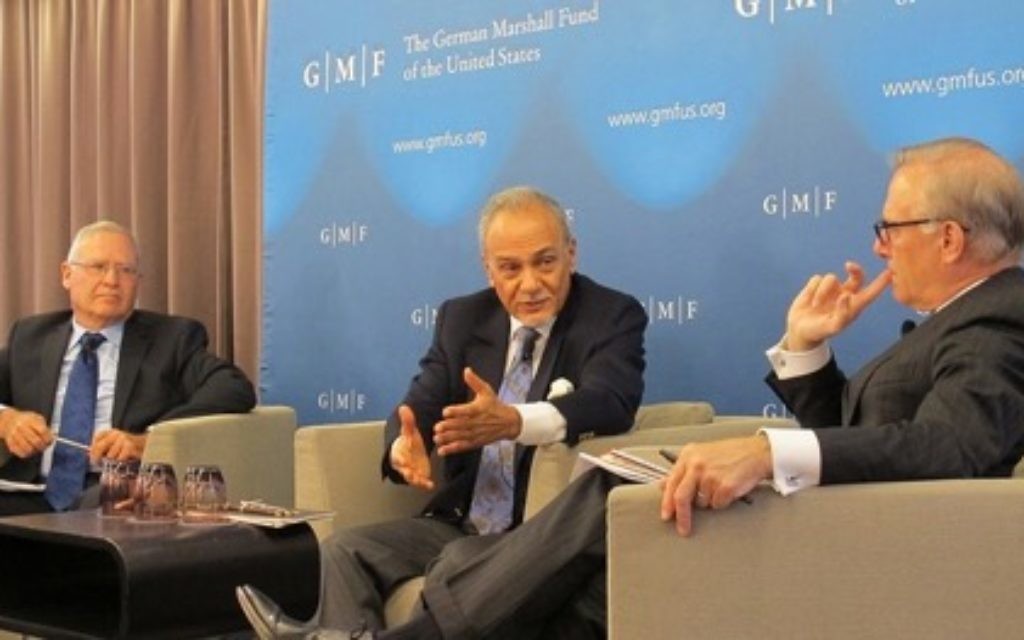Cooperation Continues Between Saudis, Israel
Public dislike for the Jewish state will not keep Saudi Arabia from working with Israel in the Middle East.

Saudi Arabia hosted an international chess tournament in December, and Israeli chess players were conspicuously barred.
This well-publicized ban is indicative of many such exclusions of Israelis by Saudi Arabia and other Gulf states from a variety of international events. Nonetheless, Saudi Arabia is not uninterested in pursuing closer ties with Israel.
With regional unrest boiling over, Saudi Arabia and Israel find a common external threat in Iranian adventurism. Beneath this alliance of convenience, there lurks the common Riyadh and Jerusalem views of preserving the status quo or working for it. There is a history to it.
Get The AJT Newsletter by email and never miss our top stories Free Sign Up
In 1981, Saudi Crown Prince Fahd drafted an eight-point proposal for a two-state solution to the Arab-Israeli conflict. The Fahd Plan, official Saudi policy for over a decade, perpetuated a long-standing pattern of Saudi strategic pragmatism in terms of international relations.
Fahd saw peace between Israel and the Arab world as a win for the Saudi agenda, a large part of which was strengthening diplomatic and military ties with the United States. It is not a coincidence that the Reagan administration’s controversial yet successful proposal to sell the Saudis advanced military aircraft was submitted to Congress the same year as the Fahd Plan’s formation.
After Iraq’s 1990 invasion of Kuwait and subsequent long-term U.S. military intervention in the region, the Saudis accepted bolstering their alliance under American military protection.
During the numerous U.S.-co-sponsored Arab-Israeli peace processes in the 1990s, the Saudis quietly supported diplomatic solutions to the conflict. On numerous occasions, they offered millions of dollars to provide economic aid to the Palestinians in an attempt to build scaffolding for an independent Palestinian state alongside Israel.
In 2002, after the collapse of another round of Israeli-Palestinian negotiations and the Second Intifada, the Saudi regime issued an updated proposal for a two-state solution. Sponsored by Crown Prince Abdullah, the Arab Peace Initiative was lauded by the George W. Bush administration as “the first time we’ve heard any nation in the region talk about full normalization between Arab nations and Israel at the end of the peace process.”
Since then, the API has undergone numerous iterations to adapt to the changing circumstances of negotiations. These have included support for the idea of swapping certain settlement blocks for other Israeli land parcels (2013). Put differently, Saudi Arabia is seeking to reduce Palestinian-Israel tensions.
While the exclusion of Israelis from the Saudi chess tournament seems like a cut-and-dried display of traditional dislike for the Jewish state, the two regional powerhouses see quiet cooperation as mutually important to national interests. We should not be surprised if the Riyadh-Jerusalem axis continues to grow slowly and in private.
More Information
- Oded Eran, “Will Changes in Riyadh Lead to New Era in Israel-Saudi Relations?” Ynet News, Nov. 10, 2017, www.ynetnews.com/articles/0,7340,L-5040673,00.html.
- Mordechai Kedar, “The Ten Commandments for Israeli Negotiations With Saudi Arabia,” Arutz Sheva, Nov. 20, 2017, www.israelnationalnews.com/Articles/Article.aspx/21287.
- “Israel and the Middle East: Seeking Common Ground,” a conversation with Prince Turki bin Faisal al-Saud and Gen. Amos Yadlin, German Marshall Fund, May 2016,



comments